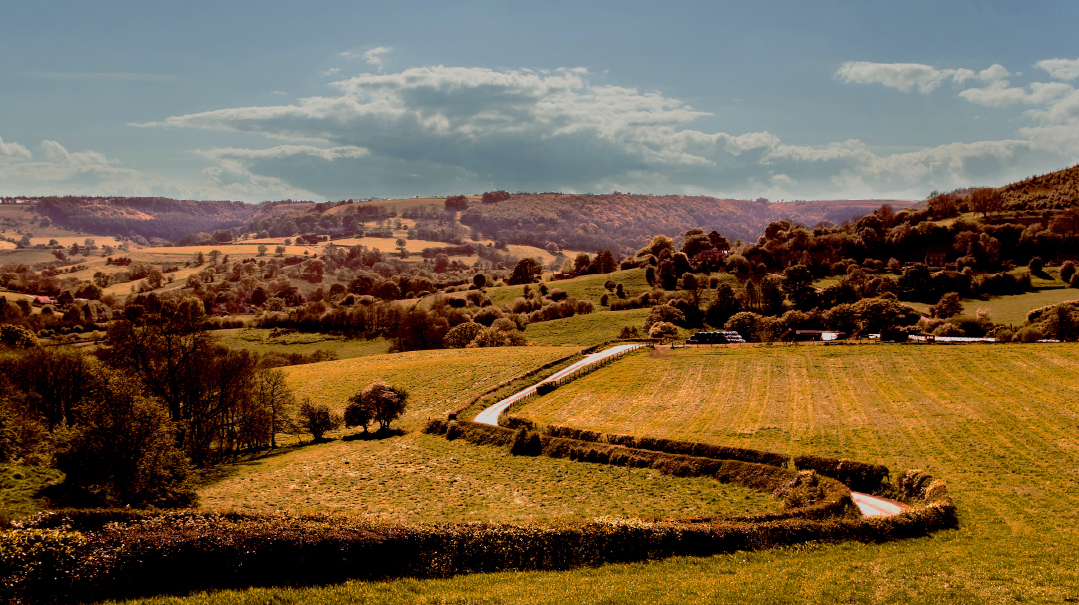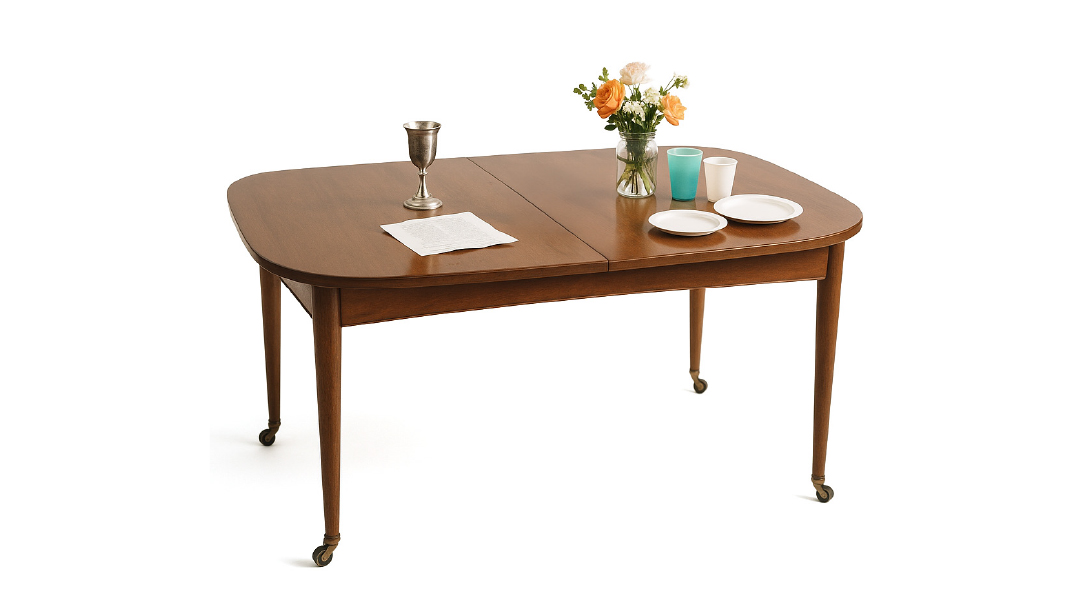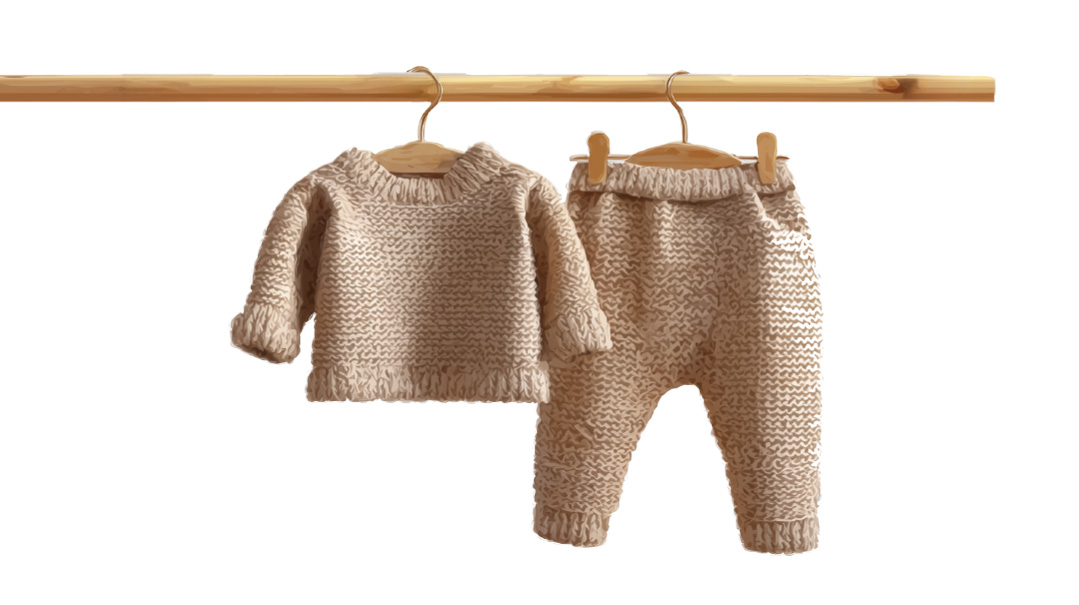The Winding Escape
| February 10, 2021Just 13 years old, she escaped war-torn Hungary

As told to Riki Goldstein by Suzie Graus
Budapest, August 1946
I was a native of Budapest, and my parents had grown up there too. My childhood hadn’t been idyllic; my mother died when I was three, my father remarried when I was five, and World War II broke out when I was eight.
The Nazis only invaded Hungary in 1944, but when they did, the annihilation of Hungarian Jewry was carried out with great efficiency. My family had survived by going into hiding, moving around from place to place in the large city. During the final three months of the war, I was taken in by a non-Jewish family in the Buda section of the city. I try not to think about those awful years.
After a prolonged siege, our city was liberated from the Nazi grip by the Soviet army. Budapest was free of the Germans, but our liberators, the Russians, were a violent mob who ran amok in the city.
As the victorious army, they could do anything they wanted and not be held accountable, for they were the de facto rulers of the region. They could loot and plunder people’s homes; they could — and did — attack women. The Russian soldiers were often low-class peasants armed with guns. They drank any alcohol they could find, including perfume. There were no police besides the military, so the city became lawless.
I remember the fear I felt as a 13-year-old girl. I slept under a window, and I could hear the drunken swearing and plundering and violence which went on at night. Occasionally, a Russian drunkard would throw someone out of a window. During the day I saw officers swaggering around the streets wearing stolen watches up to their elbows.
I begged my parents to get me out of the Soviet mess which Budapest had become. My stepmother had a brother in London who kept advising us to come there, but my father didn’t want to leave Hungary. His family had been in the timber business for generations, and he was able to continue trading after the war, so he was doing well financially. There was still a Jewish community remaining in Budapest after the war, although nothing like it had been previously. We davened in the Orthodox shul.
Eventually, I managed to persuade my parents to let me go to my stepuncle in London. We’d heard that the orphans from the Jewish orphanage would be traveling to England in a post-war Kindertransport organized by Rabbi Dr. Solomon Schonfeld of London, and for some money, I was allowed to join the group.
There was no space on the trucks which would transport the orphans, so I and three other girls who had paid to join were to travel in Captain Mozes’s car. Mr. M., as we called him, was a young man at the time, a Schonfeld emissary. He wore the UNWRA uniform and was officially a chaplain attached to the British army. Unofficially, his purpose was to rescue as many Jewish children as possible from the ruins of Europe and take them to safety and freedom wherever it could be found He was kindhearted and generous to a fault.
Before I left Hungary, my grandfather took me along with him to my mother’s matzeivah to say farewell. It was the first time I’d ever been there.
Then it was time to go. Early one August afternoon, on a shaded street outside the Jewish orphanage, I met up with the three girls I’d be traveling with. There was a girl named Clemmy and sisters Irene and Baba, who were all aged 15 to 17. As we waited, girls and boys of all ages piled out of the orphanage, carrying their coats and small packages containing their possessions. I was the only child who had parents; none of them had anything, or anyone, to leave behind. They climbed aboard the trucks, with brave smiles and some tears, and drove away.
The four of us climbed shyly into the back of Mr. M.’s car and he drove off too, through the familiar streets of our hometown and then out to the countryside. The plan was to stop the car at dusk, just before we reached the frontier. We girls would walk 400 paces through the fields, then come back onto the road, having bypassed customs.
Our adventure began when we made the innocent mistake of walking back on to the road too soon. The four of us walked straight into the arms of the Czech border guards. They fired questions at us: “Names!? Where have you come from? Why are you girls alone? Where are you headed?”
We didn’t have answers ready, but we knew that we shouldn’t speak Hungarian, for fear of being sent back there. Clemmy knew a few words of Czech. “We’re all sisters, we’re running away from our stepfather,” she mumbled to the officers. They shrugged disbelievingly.
Mr. Mozes was being shown through the customs shed when we were hustled in there. We pretended not to know each other. There was one embarrassing moment when Clemmy told the officer I spoke some English. (She’d heard I’d had six lessons.) They called Mr. M. over to speak to me, but all I could do was stammer. Much later, he told me he had been trying to tell me what to say, but of course, I didn’t understand a word. He had four suitcases of girls’ clothing in his car, but amazingly, the border guards didn’t connect him with us.
His papers were all in order, including the visas for the orphans, and he was allowed through. Our eyes followed him as he left alone, while we girls were marched four kilometers further into Czechoslovakia to a tiny police station. I remember seeing the lights of Bratislava glowing ahead of us in the warm, sultry darkness of the August night.
At the police station, we sank down onto hard benches. We were tired, and hunger had crept up on us, but still, as experienced war kids, we weren’t going to tell anyone who we were and what we were doing there.
Early the next morning, the Czech police decided to send us back to Hungary, and as the sun was about to rise, we trudged back along the road, escorted by a lone soldier. When we stopped on a hilltop, Irene took off her gold chain and offered it to him, pleading with her eyes, “Can you just let us go?” He didn’t, but after crossing us over the border, he left us on our own.
We begged for shelter at the first farmhouse we saw back in Hungary. The family there was very decent and offered us the beds they had just gotten out of, then some food. “Why not try again tomorrow night, with a local peasant to guide you?” they suggested. I guess inhabitants of border towns are used to smuggling.
Children that we were, naturally we each telephoned our parents in Budapest to let them know what had happened and update them regarding our plans.
At midnight, we met our new guide and set off, well-rested and relaxed, making good time down the paths, and exchanging our war stories with his smuggler’s tales. Suddenly, as we passed a clump of bushes, a man jumped out, his silhouette elongated by the moonlight, and yelled, “Halt, you’re under arrest!”
No questions were asked this time as he marched us away, hand on his gun. We all realized that the police must have been listening in to our conversations with our parents. Did they listen to all the phone calls in the border towns?
The soldier took us to another police station, this time in a small Hungarian border town. The door of the cell was wide open to receive us “criminals,” then locked. We spent the night huddled together on a wooden bench, exhausted and hungry once again. We were so fed up with the whole adventure.
In the morning, we were ordered out of our cell for a pronouncement from the pudgy, chain-smoking sergeant. “We will let you go now, and you will promise to go back home to your families in Budapest, like good children,” he said. We had no choice but to dutifully promise, and then we were released to freedom.
As the youngest, I looked up at Clemmy and Irene. They conferred quickly and despairingly, considering the facts: We were closer to our destination of Bratislava than to Budapest. Our pockets were empty — no money, no food, and we were tired and couldn’t walk much further. As we huddled at the side of the road, a large truck piled high with sacks of flour drew up and stopped for us. It seemed to make sense to get on, as in our state, we needed to hitch a ride, wherever the truck was headed.
We helped each other clamber up, only to find a Hungarian policeman taking a ride on top of the flour, too. “I saw you girls in the police station,” he commented, in friendly fashion. “You’re not going home so quickly, are you? Do you still want to cross the border?”
Was this a trap? A kindness?
Helplessly, we just nodded yes. To our surprise, when he got off the truck at his village, this policeman took us home along with him. His wife gave us some bread spread with honey. Manna from heaven must have tasted like that treat did to four hungry girls. Then the policeman told us we could set out again. This time in a horse-drawn cart, with the policeman, we bumped along country lanes in the sunshine for about two hours. Our nerves were somewhat soothed and our hopes soared once again.
I realized that we’d reached the border when the cart arrived at the banks of the River Danube; it had to be crossed to get into Czechoslovakia. At this point, the river was very broad, and the customs house was located on a tiny island in the middle. Our friendly policeman let out a long whistle, and a man rowed toward us from the island. He was the border guard, but ironically, he was also a link in the chain of smugglers. This was so typical of the times.
We got into the boat and waved goodbye to the policeman. Our boatman lived on the island, where he had a house with a fruit orchard and a few ducks and chickens. “I can take you across at night, but meanwhile we need to wait,” he explained.
We couldn’t stay in his house, because there were other officials patrolling, so we had to spend the day hiding in the orchard. There was fruit to eat, but we had to keep very quiet and still. We were hot and dirty, and by that stage, the four of us were getting on each other’s nerves.
Time passed very slowly, and the mosquitoes feasted on us. Silently weeping, slapping, and scratching, we thought night would never come.
But it finally did.
At a signal from the other side of the river, we were silently rowed across in the moonlight. We held our breaths, lying still on the bottom of the boat, since coastguards shot on sight. When we crept out, Irene thanked the border guard-boatman, and left her gold necklace in his hands.
Our next smuggler guide was waiting in the shadows. He told us to remove our shoes so we could run silently. It wasn’t easy, our stockinged feet blistering and wet, but we ran for around two hours, up and down hills, in and out of little brooks, into one forest and out another, until we arrived at a farmhouse at daybreak.
This was Czechoslovakia. The peasants were celebrating the threshing of the corn and they brought us cornmeal pudding for breakfast. We had to wait for nightfall to run any further, and we waited hidden in a barn, with the lovely, earthy smell of drying corn, which is still with me.
When it was dark and time to go, the farmer advised us to walk in pairs, so we would be less conspicuous. We had no idea where we were, but he told us that a car awaited just outside the village, so we walked as we were told, Irene and Clemmy in front, myself and Baba a little after them. Suddenly, a car overtook us on the little road, stopped for Irene and Clemmy, who got in, and then drove off.
Of all our experiences, this seemed the worst. Baba and I stood there, stunned. Baba was hysterical at this sudden separation from her sister, but her screams were silent.
It must have only have been a few minutes, but it was long enough. We didn’t notice a cyclist coming up behind us, until he spoke quietly in Hungarian and called our names. He was the last link in the chain of smugglers, and he kindly gave me, the youngest, a ride on his handlebars.
He told us the others were safe, and brought us to the home of a kind Jewish couple who had been looking for us since we disappeared. The lady of the house was actually in bed, as she’d just had a baby. We hadn’t looked in a mirror in three days, but when she saw our faces, she was shocked. It turned out to be the mosquito bites which horrified her; we looked like we had caught some awful disease.
Soon we were taken to Bratislava by car, to join Mr. M. and stay with all the other children in a hostel, and our parents were informed that we had arrived. We waited there for a month for our British visas, still careful not to speak Hungarian on the streets, and when the visas arrived, we traveled to Prague and then flew to Croydon airport in London.
“How old are you?” asked the British officials at customs.
“Sixteen,” one of the boys in the group replied. The kindly officer said to him, “No! Ask Captain Mozes how old you are supposed to be.” Officially, all of us were orphans, and all were under age 14, because those were the Kindertransport rules.
My stepuncle, who was a Hungarian-English interpreter, came to meet our plane and help all the children get through and answer the border guards’ questions. Rabbi Dr. Schonfeld was also there, tall, handsome, and impressive.
The group split up, with children either going to stay with relatives or to be fostered by kind families whom Schonfeld found. Many of them were put up in his hostels, and of course, schooled in his Jewish schools. I was supposed to go to my stepuncle in London, but as he was a bachelor living in a studio flat, he didn’t know what exactly to do with me.
His solution was to take a room for me in the Halberstadt kosher boarding house in Golders Green. It was one of the few kosher places at the time, and functioned as a restaurant as well, so he was often there for meals.
As 13-year-old, in a room with no pictures, no books, no company, and still not a word of spoken English — you can imagine that I wasn’t too happy. Someone heard me crying and took me to visit the only other relatives I had in England, Mishy and Magda Breuer in Stamford Hill.
Mishy Breuer had arrived in London before the war, and was a partner in the well-known Stamford Hill grocery “Breuer and Spitzer.” He was single and the Jewish mothers of Stamford Hill were agog to arrange a shidduch for him, but he waited throughout the war to marry Magda, who was in hiding in Belgium. Madga, who came to London after the war, was my father’s first cousin.
They were truly wonderful people. Candy and chocolate were still strictly rationed, but as I was leaving after my visit, Mr. Breuer put a bar of chocolate in my pocket. Unaware of this, Mrs. Breuer, taking her leave of me on the other side, slipped a bar into my other pocket.
They could see I was in need, and they took me in. I stayed with the Breuers for around four months. Mrs. Breuer didn’t have that much Jewish education as she was in hiding during the war, but her husband used to give her “shiurim” around the dining table on Shabbos, all about the sedrah, and I listened too.
The Breuers were incredibly nice to me, and those four months in their home are the reason that I remained religious. My parents were Orthodox, although not staunchly so, but the example of that wonderful home never left me.
After a few lovely months, an older relative of the Breuers arrived in London. “A girl of 14 can’t live with a newlywed couple!” she said. And I had to go. So much had happened to me in my life that I can’t even remember being upset. I was invited back regularly for Yamim Tovim.
My next stop was the Hasmonean Boarding School, which was in a big, fancy house in the upper-class neighborhood of Hampstead. It was min haShamayim that I came across this place, so perfectly tailored to my needs.
The boarding house was known as “The Logs.” I remember a stately marble fireplace and polished wood floors. I loved the beautiful garden and gracious dining room, and we all went to daven three times a day, the girls too, in a big room that was designated as the shul. I was the only Hungarian girl there. They were mostly Polish refugees, and a couple of English children who came to the school from out of town or whose parents could not care for them.
I settled and I was happy. Then, four years later, in 1950, my parents left Hungary. My father had continued running his timber business, which was doing pretty well, until one day, relaxing in bed with a newspaper, he read that his company was being nationalized by the Hungarian communist government. It was time to go. He and my stepmother got out of bed, packed small valises with a few belongings, and left Budapest.
They took a bus up to north, to Miskolc, and from there the local Hungarians and Czechs had a well-organized smuggling network. They walked and ran across the border, in more or less the same fashion I did, although they were no longer young and were slightly infirm. After their wait in Vienna for British visas, we reunited in London. It was wonderful that they were free, but strange that they still wanted to “bring me up” when I had been away from them for so long and already considered myself a young adult.
It was friends of my parents who set me up on a shidduch with my husband, Eric Graus. Eric was Hungarian-speaking, from Bratislava, a young man from a good, frum family, full of spirit and enthusiasm for Jewish causes.
Marriage meant a home of my own, and someone who was always on my side. For 65 years, beginning in a tiny apartment opposite the “69” shul in Stamford Hill, we lived our dream of a happy Jewish home of our own. I tried to give my children the stable, happy, normal childhood I didn’t have.
Eric was an idealist, a religious Zionist who had worked for the cause in the pre-State days, and the founder and leader of the Herut group in the UK. Later, he worked tirelessly to help Soviet Jews. I was still terrified of the Russians, from the horror I’d felt in Budapest. Eric stopped at nothing to help the refusenik cause, and was involved in all the activist pressure groups. Whenever Avital Sharansky came to London, she stayed in our home, and when Natan was finally released, he came too.
My daughters married and live in London, but my son absorbed the Zionist influence and married and settled in Israel, where he is, baruch Hashem, a grandfather today.
I never dwelled on my war experiences, preferring to move forward. I don’t consider myself hard done by, at all. I was hidden by non-Jews, and only for a short time, and our own family remained intact.
When my father came to London, he underwent major heart surgery, which gave him another 20 years of life. During his final illness, I walked with my son to visit him on a Yom Tov. To pass the time, I started to retell the story of my own escape. We walked through the chilly streets of London for three-and-a-half hours, and just as we approached the hospital doors, I reached the end of my story.
My son has never forgotten it, just as I’ve never stopped thanking G-d for the miraculous chain of events.
(Originally featured in Family First, Issue 730)
Oops! We could not locate your form.







